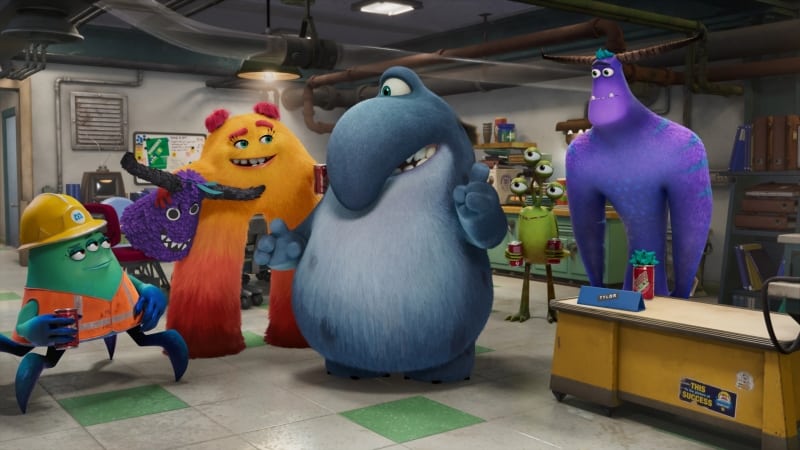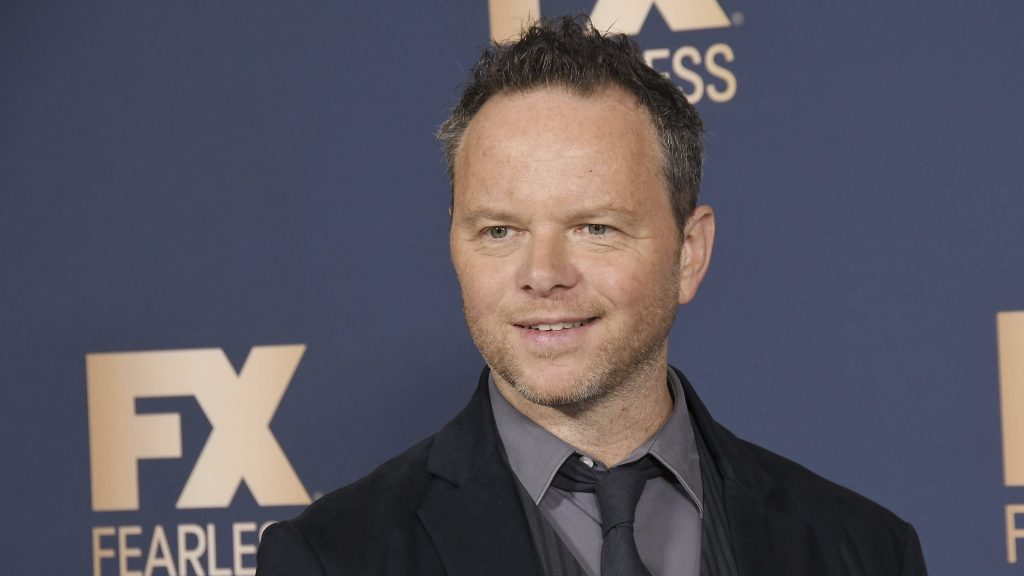The Extraordinary Everymen of Jovan Adepo

Welcome to Filmographies, a column for completists. Every edition brings a working actor’s resumé into focus as we learn about what makes them so compelling. In this entry, we spotlight the filmography of Jovan Adepo.
Jovan Adepo has hit a sweet spot as an omnipresent performer. Perhaps some of his early stuff feels serendipitous — it’s not like we haven’t seen that occur before with the most precocious of rising stars. However, Adepo stands out precisely because of how well he blends into the fictional worlds he inhabits. A study of his filmography makes one thing clear: Eschewing showiness and mawkishness despite the Hollywood prestige of his big- and small-screen roles alike, the chameleonic actor charms his audiences with understated sincerity, ensuring that his memorable moments of bravado are thoroughly earned.
The Youth (2015)
Before Jovan Adepo’s big breakout in film and TV, his resumé comprised a number of fairly elusive short films. The most accessible and substantive of these efforts is Dehanza Rogers’s The Youth. The fifteen-minute drama tells the story of a disillusioned college graduate whose thirst for purpose fuels a vehement desire to enact extreme change in his life.
The short sees Adepo playing a young man named Sahal, who is childhood best friends with the narrative’s protagonist, Said. He has returned to his old college town on “business,” and the friends seemingly run into one another by happenstance. Although Sahal first carries himself with a warm, easygoing demeanor, he expresses lofty goals of self-determination and hopes that Said feels the same.
The Youth relies heavily on its actors’ thoughtfulness and significance to bolster the complexities buried between the lines of the screenplay. Thankfully, of the little that we know about Sahal, Adepo’s calm lucidity juxtaposes the perilous ramifications of his character’s influence over the short’s lead. Despite the film’s weighty themes of cultural displacement and identity posing more questions than answers, Adepo is thoroughly convincing with his eerily unwavering belief.
The Leftovers (2015-2017)
Jovan Adepo channels more wholesome aspects of faith in his role in Damon Lindelof’s inexplicably beautiful mystery drama The Leftovers. The critically acclaimed series that ran for three seasons on HBO focuses on several families and communities affected by the Sudden Departure, a global event in which two percent of the world’s population abruptly vanishes.
Appearing in the show’s second and third seasons, Adepo portrays Michael, the reserved, devoutly religious teenage son of the Murphy clan. Native to a small town boasting zero Departures, he lives contently with strong-willed parents (played by Kevin Carroll and Regina King) and his twin sister Evie (Jasmin Savoy Brown). But when Evie goes missing in a Departure-like event, Michael must grapple with his view on spirituality and adjust to this new, traumatizing reality.
Within the large ensemble of The Leftovers, Adepo can often be found on the fringes of the ambitious, mind-bending narrative. That said, this isn’t necessarily a detriment to the series, given its holistic nature and its complicated take on loss. When Adepo does show up, he starkly represents as well as interrogates the ideals and foundations of religion.
Sometimes, these frankly pure qualities are even desirable amid the emotional chaos of the rest of the series. For sure, Michael undergoes his own reckoning as he matures over time, and grief, pain, and disillusionment touch him too. But there is a sweetness to him because of Adepo’s persistent genuineness and keen, quiet observations of those around him.
Fences (2016)
Jovan Adepo’s feature film debut arrived in the form of Denzel Washington’s Fences, marking a breakout of epic proportions for any up-and-comer. The cinematic adaptation of August Wilson’s eponymous stage play — penned by Wilson himself — follows the tumultuous daily life of the Maxsons, an African-American family building a life in 1950s Pittsburgh. This includes Washington’s patriarch Troy, Viola Davis’s matriarch Rose, and their teenage son: Adepo’s idealistic Cory.
Fences dissects the conflicts found within these intersecting relationships, revealing them to be the dispiriting result of generational and racial trauma. Cory’s dreams of becoming a star football player in college are as much affected by Troy’s incessant disdain for his dreams as they are by Rose’s bountiful love for them. Moreover, the social conditions of the story’s setting perpetuate worrisome patterns of oppression for the youngest Maxson that were once felt by his father.
However, Adepo fights back, fully embodying Cory’s yearning for personal agency. He so deftly suppresses the character’s explosive feelings that even his silence is poignant and loaded, making his various tête-à-têtes with Washington thoroughly satisfying. Adepo may appear less frequently in the film compared to his famous co-stars, but he takes a memorable stance for free will.
Overlord (2018)
Horror notably crops up several times across Adepo’s resumé. A supporting appearance in Darren Aronofsky’s psychological drama mother! (2017) initially allows him to dip his toes into the unnerving genre. Jovan Adepo’s discomfitingly discourteous role as Cupbearer feels more cameo-esque than the material handed to mother!‘s star-studded main cast. Regardless, this wildly controversial movie kept him on everyone’s radar.
Rather, Adepo’s starring role in Julius Avery’s action flick Overlord is his most prominent early contribution to horror and indeed one of his most remarkable projects overall. The film tracks a squadron of American paratroopers tasked to infiltrate Nazi-occupied France a day before D-Day. What initially seems like a straightforward mission to take out a vital communications tower devolves into a nightmare of guts and gore when the group discovers a secret lab full of human experiments.
Adepo steps into the shoes of Overlord‘s protagonist, Private Boyce. Compared to the no-nonsense attitude of the squadron’s leader, and against a backdrop of perpetual taunts from fellow soldiers, he seems too soft to be in battle. We often see Boyce opting out of violence, displaying a natural inclination to be empathetic. As such, he certainly represents the most human element of the film by acting as his team’s moral compass — whether they want one or not. Boyce further forms a camaraderie not only with his skeptical squadmates but with oppressed locals of the region as well, raising the stakes of the movie considerably.
Ultimately, Boyce’s more timid reservations give way to good-hearted gallantry when innocent lives are threatened. Of course, this storyline can easily be expected from a gleefully bloody genre movie about kicking Nazi ass. Nevertheless, Adepo impresses upon us the actual extent of the anxieties and dangers of the operation at hand, maintaining the film’s heroic spirit as we stumble through sheer terror with him. We couldn’t ask for a more entertaining film with which to establish him as a leading man.
Sorry for Your Loss (2018-2019)
In comparison, the Facebook Watch series Sorry for Your Loss sits on another end of the dramatic spectrum. That is to say, where Overlord is a heightened reimagining of the Normandy landings during World War II, Kit Steinkellner’s sadly short-lived, underrated family drama tackles the topics of bereavement and recovery in an unmistakably grounded way.
Sorry for Your Loss spotlights a widow named Leigh as she bleakly goes through the motions in the aftermath of losing her husband Matt (an ethereal Mamoudou Athie). Jovan Adepo is part of the show’s powerhouse ensemble as Danny, Matt’s abrasive, argumentative brother who also struggles to come to terms with his brother’s passing, especially regarding the relationships that Matt leaves behind.
Which certainly makes Danny one of the most complex characters of the entire series. I’ve made a case for Sorry for Your Loss when gushing about Athie’s brilliance in the past. To this day, I continue to champion the show’s authentic portrayal of pain in all its messiness and bittersweet beauty. In Danny’s case, the loss of Matt hits harder than he prefers to let on. During rare moments of explosive vulnerability, in-universe characters and viewers alike are gravely reminded that he “can’t just get another brother” and this present-day trauma only compounds pre-existing issues from the siblings’ shared life as children.
Adepo turns in one of his most electric performances to date when he sinks his teeth into Danny. More often than not, the character isn’t even very likable. He regularly falls prey to melodramatic circumstances due to his fierce, magnetic connection to both Leigh and Matt. However, Adepo makes us stew in the discomfort of his emotional disarray, ensuring that the closed-off, frequently antagonistic Danny is fully seen and heard. When we get to know the complicated depths of his inner turmoil, we can only wish for more seasons that Facebook robbed us of when it canceled the show.






